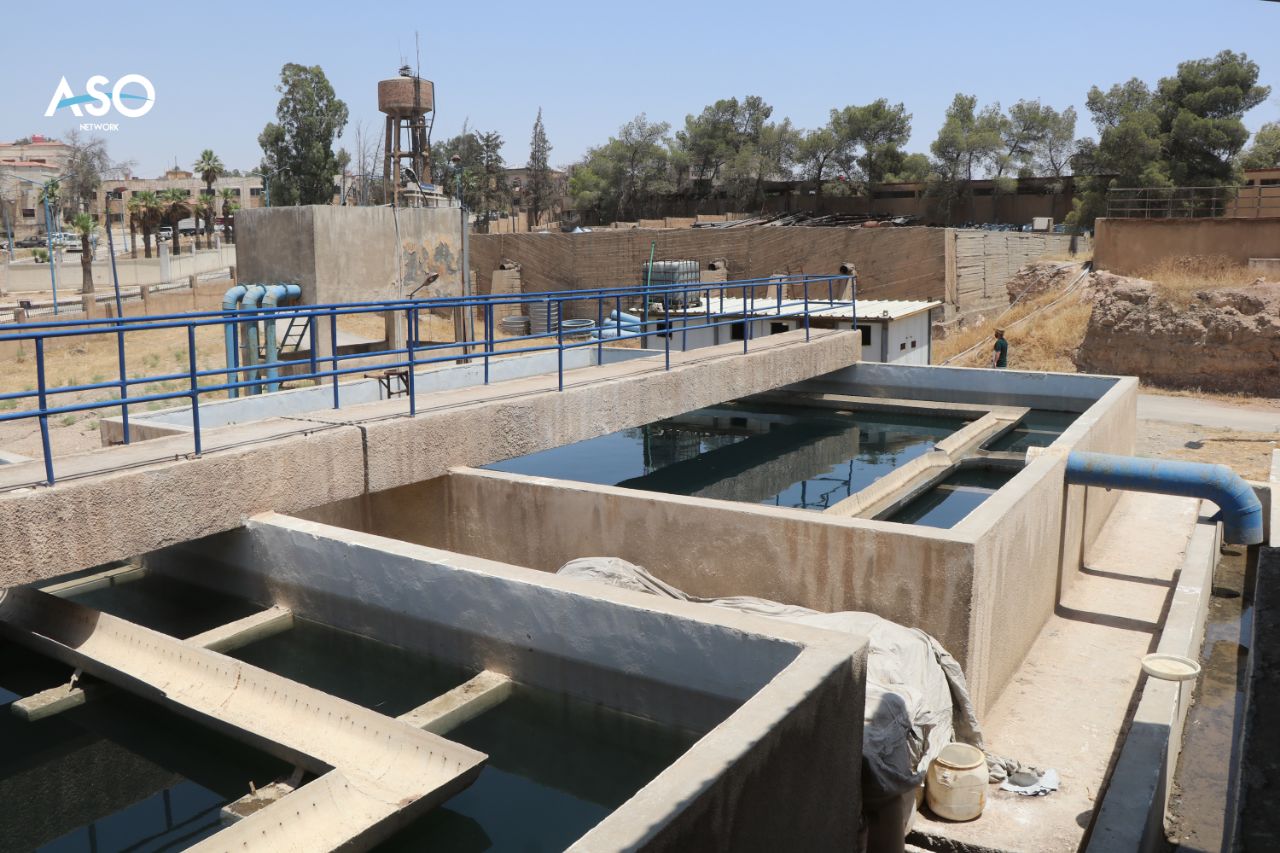News
The delay in the arrival of Euphrates water to the Al-Aziziya station due to encroachments on the water supply line between Deir Al-Zour and Al-Hasakah

The General Directorate of Al-Hasakah Water explained that the delay in the arrival of the Euphrates River water to Al-Aziziyah station is due to infringements on the water extraction line between Deir Al-Zour and Al-Hasakah, days after the rehabilitation of the project, which has been stopped for three years.
The directorate indicated during a press conference held yesterday, Monday, that water reached Al-Hasakah experimentally during the past two days, but the pumping stopped due to encroachments on the line. They added that the water supply to the filtration station in Al-Aziziya is currently cut off until these hidden violations are addressed.
The directorate explained that it is currently cooperating with the Internal Security Forces (Asayish) to remove the encroachments, which numbered about 80 on the line between Deir Al-Zour and Al-Hasakah.
23 trespassers were monitored from Al-Sour station to Al-Saada area in Deir Al-Zour countryside, and another 56 trespassers were monitored from Al-Saada area to Al-Alwa station.
Hassan Biro, an administrator at the Al-Hasakah Water Corporation of the Autonomous Administration, said in a statement to ASO News Network that water is currently being collected in the tanks at the desalination plant in Al-Aziziya, which has a capacity of 12 thousand cubic meters, and is sufficient for four hours of continuous pumping, he said.
He stated that the neighborhoods connected to the desalination plant’s tanks, namely Al-Aziziyah, Al-Salihiyah, Al-Mufti and Ghawiran, will first benefit from this water, and the water will be provided to other neighborhoods by tankers in the coming days.
At the beginning of 2021, the Autonomous Administration began launching a project to extract water from the Euphrates River in Deir Al-Zour to the city of Al-Hasakah, with the aim of feeding the southern section of the city through Al-Aziziyah desalination plant.
The engineer supervising the project, Wiran Muhammad, reported that five manholes were constructed along the project line from Deir Al-Zour countryside to Al-Hasakah, at a cost of 40 thousand US dollars.
The project aimed to meet the needs of more than a quarter of the city’s population affected by the water outage as a result of the control of the Turkish occupation and its armed factions over the Alouk station since October 2019.
Speaking to ASO News Network, Kamal Al-Abdo from Gweran neighborhood (45 years old) believes that implementing the Euphrates water extraction project will alleviate the suffering of the residents, especially after the interruption of water through the main lines for 8 months.
He added that their water consumption in the summer triples, and their monthly cost reaches about one million Syrian pounds.
Shamsa Khalil from Tal Hajar neighborhood (50 years old) also explained to ASO that she had to pay 60,000 Syrian pounds to fill two tanks, an amount that is not enough for more than four days, calling on the responsible authorities to find solutions to the problem of water outages.
The people continue to suffer from the crisis of obtaining drinking water, and the majority of them depend on tanker water, which arrives late or does not arrive at times due to the lack of filling sources and its distance from the city, up to 20 kilometers, according to a tanker driver.
The Autonomous Administration’s efforts to secure drinking water continue, as it began late last year to implement 3 projects to extract drinking water from Amuda countryside to the city of Al-Hasakah at an estimated cost of 3 million US dollars, according to those in charge of the project.
Those in charge of the project also indicated that the project would be an alternative toAlouk station in terms of water quality and quantity, but the repeated Turkish attacks on water and electricity stations delayed the implementation of the project.
